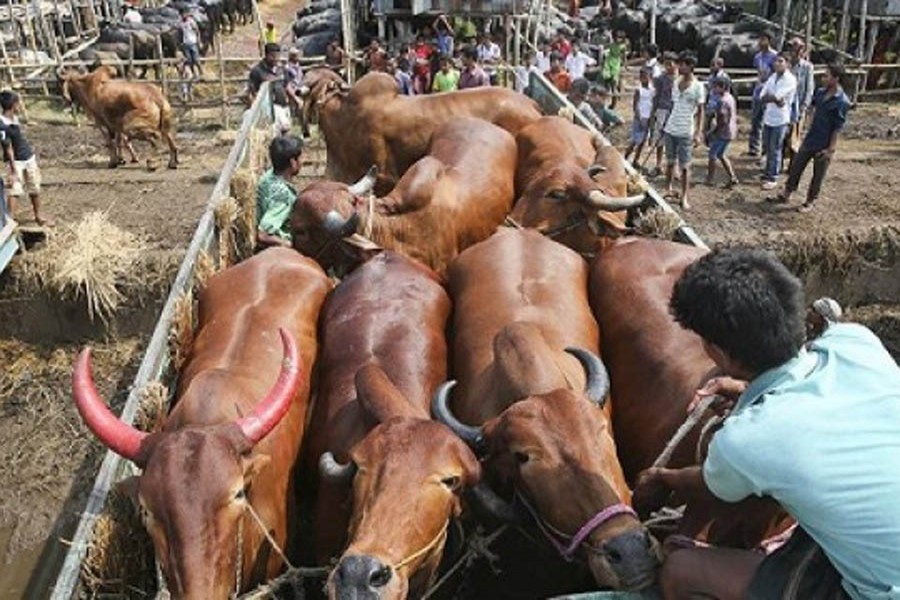Dhaka used to celebrate its Eid-ul-Azha with mass-level solemn festivity even during its days as a provincial capital. Unlike the present days, the festive mood would begin from the handful of cattle markets. A number of them would be organised by local 'sardars' in the older part of the city. Later, a few began sprouting on the northern part of the Nawabpur Rail Crossing. By the late 1960s, the Eid cattle market on the southern fringe of the then Race Course Ground emerged as the city's largest. The Gabtoli market was a weekly cattle trading venue. During Eid-time, many from different parts of Dhaka would be seen rushing to Gabtoli to buy their sacrificial animals. The century-old market still operates in full vigour, its area expanded manifold to accommodate cattle coming from far-flung areas of the country. Lots of Dhaka residents have been buying their sacrificial animals at cheaper prices from this market, 'haat' in Bangla, for decades. According to them, the market being old and time-tested, chances are few that cows bought from this market will be inferior in terms of meat quality. Smuggling-in of cows from neighbouring countries was largely a strange proposition back then.
The specially blessed syndicates nowadays rule the roost in the cattle markets, be they organised in the capital or the other cities. But compared to others, the competition over the markets' lease-taking in Dhaka often leads to eruption of violence. It involves youths backed by local influential people. To the relief of the average clients of cattle at these markets, the acrimonious situation has lightened to a great extent lately. To the chagrin of many cattle buyers, however, this development has been replaced by a new type of malady --- the unwieldy spread of cattle market throughout the city. In spite of the two city corporations' marking of 'open areas' for these markets, few Dhaka neighbourhoods have such designated areas in operation. As a result, large numbers of the cattle market lessees, traders and individual sellers have been found swarming on public streets and whatever open space available with their cows and goats. The unbearable situation created by the deafening noise and stench is not difficult to presume.
The greatest of public inconveniences stems from the obstruction of movement along the areas' roads. Women and children are the worst sufferers. Many Dhaka residents feel puzzled at the recent decline in the cattle market situation after its disciplined holding for a few years in a row. The reason why these unwarranted developments began plaguing Dhaka's cattle markets ought to be identified. The onus is with the city corporation authorities.
In the past, unplanned and illegal cattle markets used to be found in the older parts of Dhaka. Nowadays, the middle-class 'new Dhaka' residential areas are also seen turning into mini cattle markets. Buying a cow from the busy road with the animal not cleared by veterinary monitors is a common spectacle days before the Eid. Moreover, the cattle buyers do not bother about 'hasil' or market taxes if they purchase sacrificial animals from areas outside the designated markets. Freestyle sales and purchase of goats and cows eventually choke the smooth movement of pedestrians and traffic on many roads. The much-dreaded rain, isolated water logging and road repair work are detracting a lot from the cattle markets' festive excitement of the past. Few are prepared for such a turn of things.


